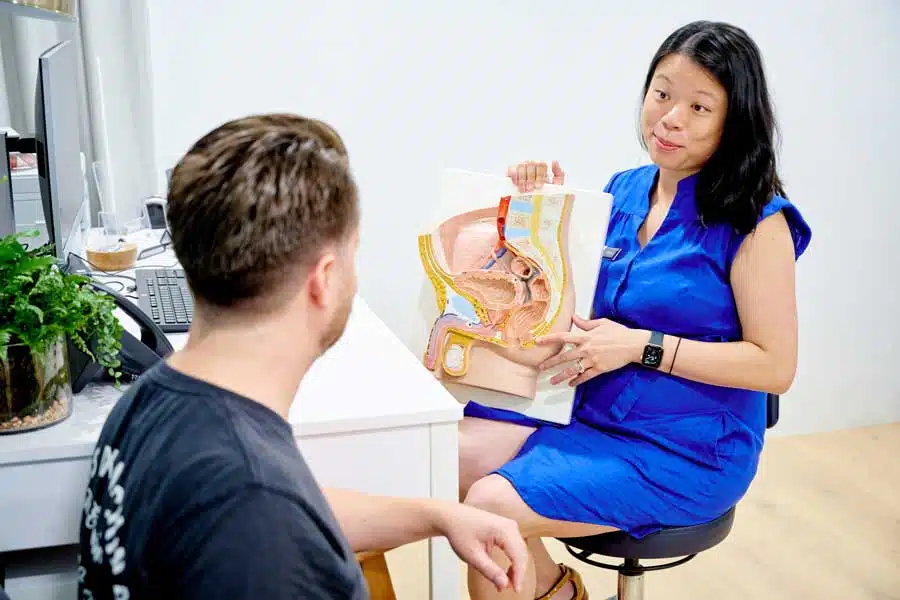In this video, Principal Physiotherapist Angela James teams up with Karen O’Connor of the Menopause, Marriage & Motherhood podcast, to discuss the topic, Why Core Exercises Don’t Exercise Your Core, and What You Can Do About It.
Summary
“50% of women will experience some kind of disorder such as incontinence, many of whom will experience full pelvic organ prolapse, which is basically where everything drops out. Why do we still find the whole subject slightly embarrassing, if not downright inappropriate, when a little knowledge could solve or prevent any of this from happening? What we call “core” classes are generally about getting a flat stomach or ripped abs, they’re not actually exercising our true core muscles, partly because we don’t know how to recognise or connect to them. So when we’re told to “switch on the core” or “engage the pelvic floor”, most people are only engaging the outer stomach muscles, the ones that look good. The word ‘Pelvis’ comes from the Latin word for ‘bowl’.
It’s the most important part of the body, not just because it’s where our spine meets our legs, but also because of the major organs it contains. Yet, few people put any thought into their pelvic health. According to Angela James, most people need help to not only identify the muscle but also to use it properly, rather than clenching our bums or our stomach or even our shoulders! Find out why it’s so important for women to connect to this part of their body, recognise what’s happening and know how to take care of it, because a weak/overly tense pelvic floor can cause so many more problems than incontinence.” – Karen O’Connor – host of Menopause, marriage and motherhood

